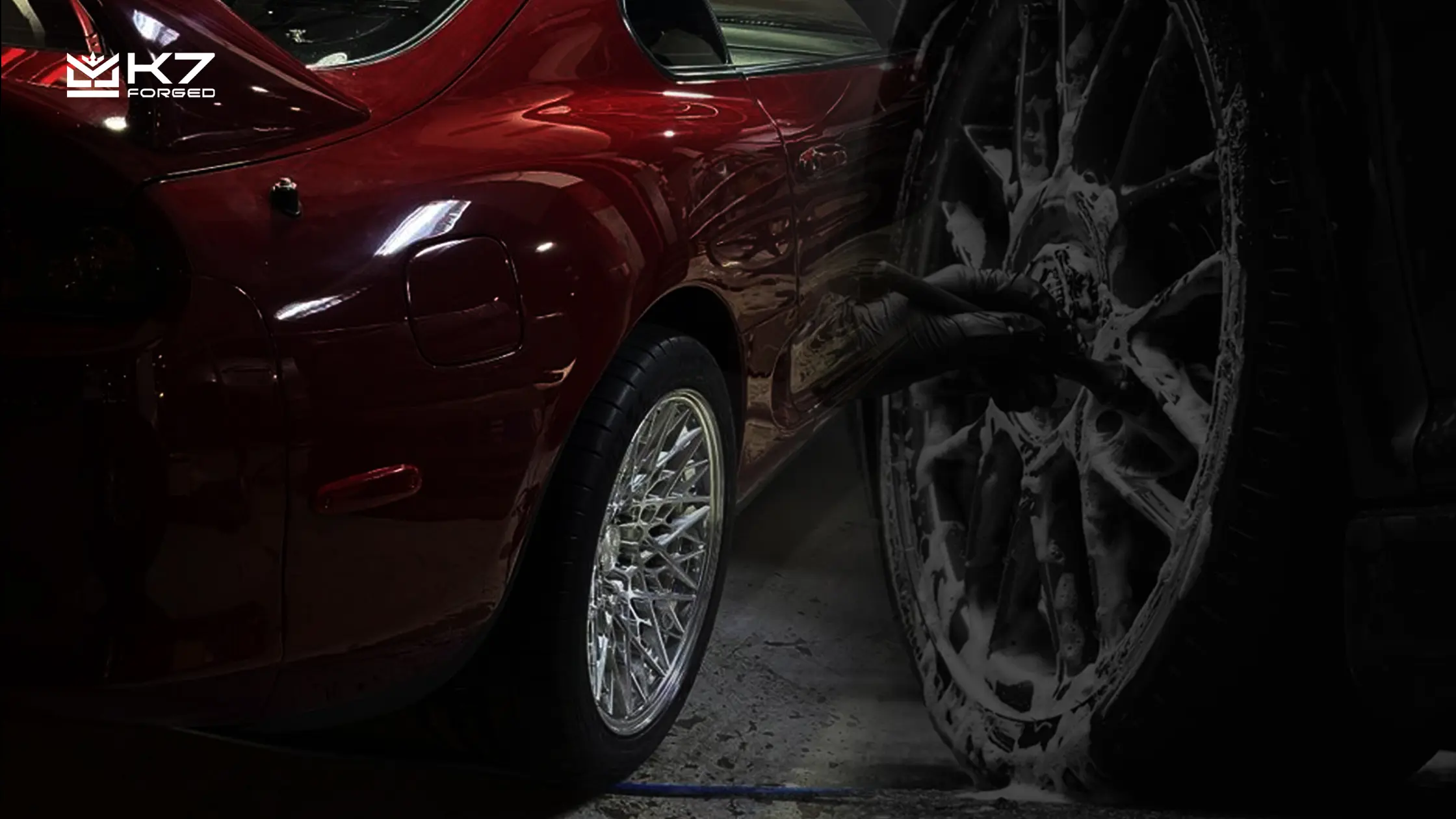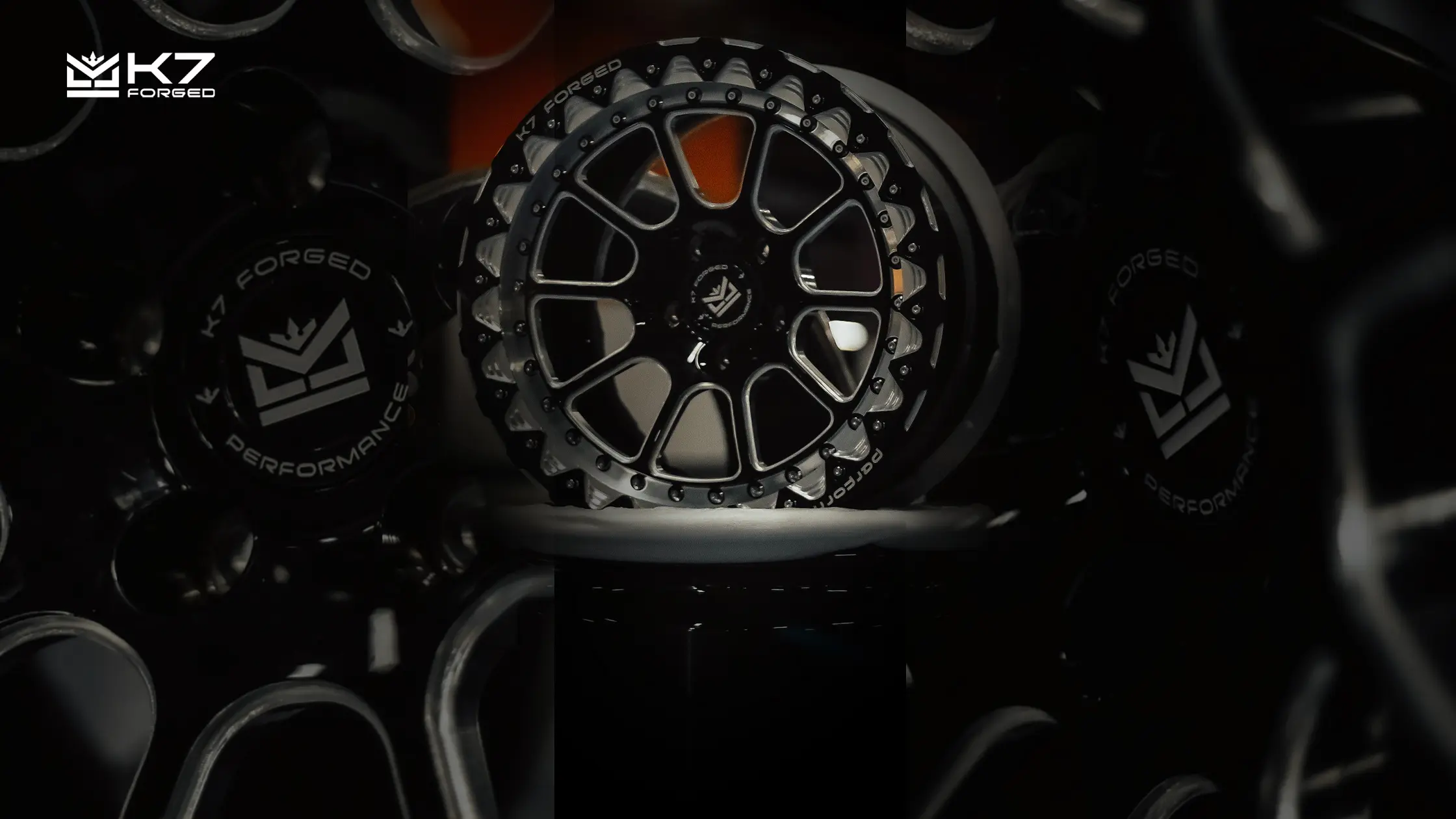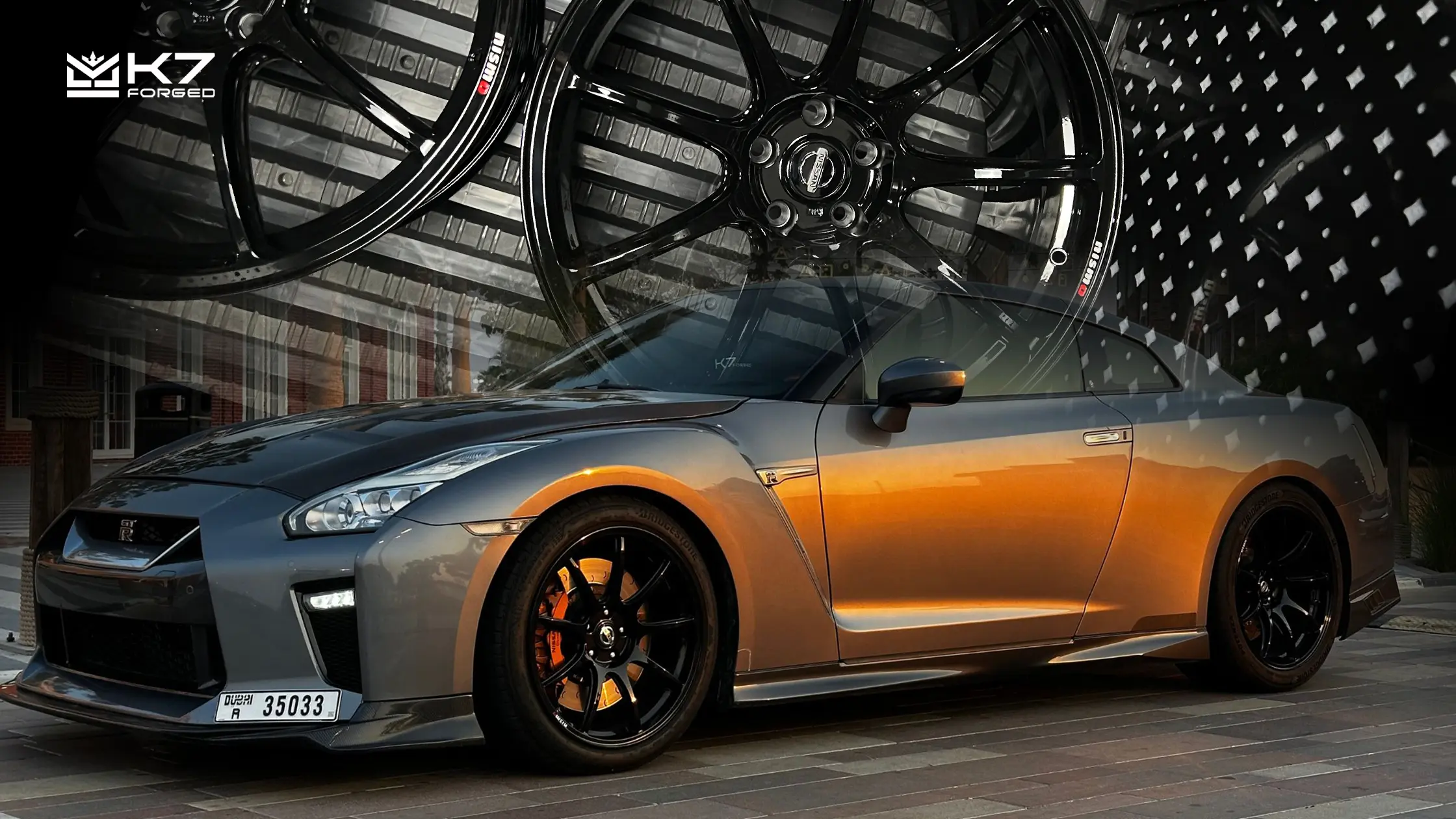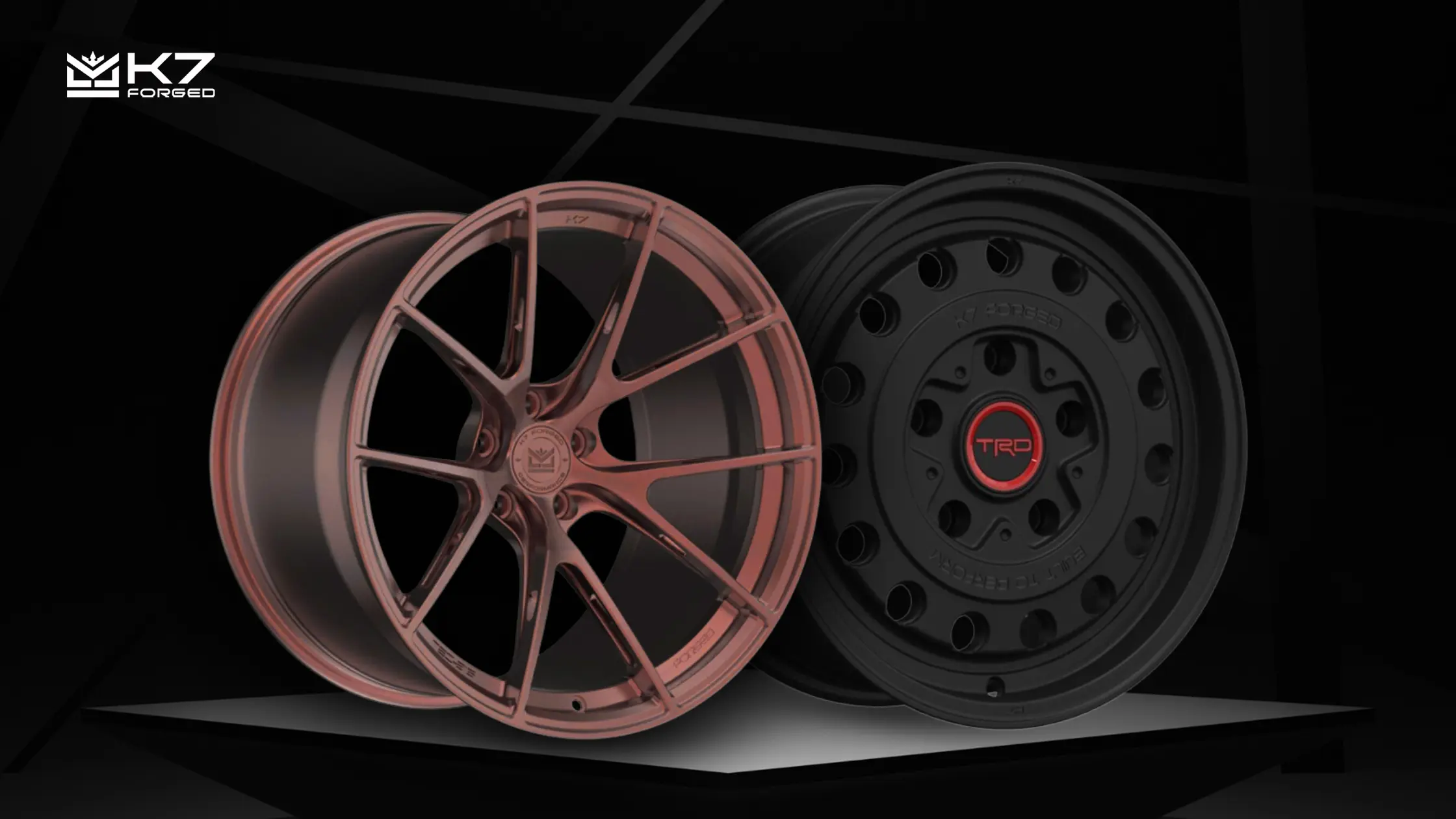Car rims don’t last forever, but their lifespan depends on the material and how well they’re maintained.
Steel rims can last decades with proper care, while aluminum rims typically last around five to ten years. Custom alloy wheels last even longer while improving handling and performance. Light-weight custom wheels can give you more mileage as well.
However, in harsh driving conditions, even high-end wheels can deteriorate much sooner.
The biggest culprit behind premature rim failure is corrosion. This blog covers everything you need to know about car rims lifespan, and preventing rim corrosion—what causes it, how to spot early signs, and the best ways to protect your wheels.
What Causes Car Rim Corrosion in the UAE?
All metals face corrosion, and car rims are no different. But the environmental factors in Dubai and the whole of the UAE make it a little more difficult for car rims to have a longer lifespan. The irony is that Dubai is one of the biggest markets for custom car rims.
Sandstorms are pretty common in Dubai, and sand is as common on the road as asphalt. Such fine sand particles may scratch the car rim surface, and any protective coating may get stripped away.
The scratched metal surface gets exposed to high humidity and salt content. Dubai is a coastal area and also a desert. The moisture-laden air combined with the salty breezes makes it pretty easy for the metal in those scratches to get oxidized and turn to rust.
That’s why you should choose forged alloy wheels, which are suitable for daily driving in the UAE. Aluminum rims naturally form a protective oxide layer. So you’ll get extra protection from corrosion compared to steel rims.
How to find hidden corrosion on Car Rims?
If you find any early signs of corrosion, then you can likely fix them, but if you drive too far with them, your car rims lifespan takes a serious hit. Here’s how you can find corrosion on car rims:
- Discoloration: Look for changes in color, such as dulling or dark spots. Any color change means that part has gone through oxidation.
- Pitting: Small, rough indentations on the rim surface can be early signs of corrosion.
- Bubbling Under the Finish: Bubbles or blisters under the paint or clear coat suggest moisture intrusion, and corrosion is what instantly follows.
But is it okay to drive with a corroded car rim?
People might think that it is safe to drive your car if its wheel rims are corroded. The justification that they have is that they don’t feel any issues. But corrosion in car rims is not something that instantly becomes an issue. It takes its time, but it is still dangerous
- Air Leaks: Corrosion can cause the rim to lose its seal with the tire. So, the chances of slow air leaks and under-inflation get higher.
- Reduced Structural Integrity: The obvious issue with corrosion is that it weakens the rim’s structure. If you’re driving at higher speeds, a quick turn might be enough for a crack in the structure.
- Safety Hazards: Corroded rims are harder to handle while driving. Because the vibrations will be more severe.
How often should you clean wheels to improve Car Rims lifespan?
If you love driving, your car’s rims take a beating every day. So, cleaning your rims regularly is the best way to increase their lifespan.
- Bi-weekly Cleaning – A proper wash every two weeks helps remove sand, dirt, and other corrosive elements.
- After Rain or Coastal Drives – If you’ve driven near the beach or through wet conditions, give your rims a quick rinse to remove the salt content.
- Use pH-Balanced Cleaners – Avoid harsh detergents that strip protective coatings. A mild soap with a microfiber cloth is enough.
Protective coatings to prevent rims from corroding
A clean rim is step one. The real trick is to keep corrosive elements from sticking in the first place. That’s where you can use protective coatings:
- Wheel Wax – Works like car wax and creates a barrier between the metal and moisture. Apply it every 3-4 weeks.
- Ceramic Coatings – Long-lasting protection that repels water, brake dust, and road grime. Lasts months instead of weeks.
- Clear Coat Touch-ups – If your rims have factory clear coats, keep an eye out for chips. Touch them up ASAP to prevent oxidation from creeping in.
Maintenance tips for K7 Forged Aluminum Rims
K7 Forged wheels are built from aerospace-grade 6061 T6 forged aluminum, which already provides superior corrosion resistance. But no rim is invincible.
K7 Forged rims have high-quality finishes, but acidic cleaners can degrade them over time. Use some mild, non-acidic cleaners. Check for any tiny nicks and scratches.
Remember to always dry your rims with a microfiber cloth, because even aluminum can corrode if water sits too long.
Can you repair corroded rims, or is replacement necessary?
Corrosion is not always a death sentence for your rims. Here’s when you can fix them—and when it’s time to let go:
- Minor Corrosion (Surface Oxidation) – If it’s just a bit of pitting or bubbling under the clear coat, sanding and refinishing can restore the rims.
- Moderate Corrosion (Deep Pitting, Chipped Finish) – You might need professional refurbishing, including grinding down rusted areas and a fresh recoat.
- Severe Corrosion (Structural Damage) – If the metal is compromised or cracks have formed, replacement is the only safe option.
K7 Forged’s Lifetime Warranty Support for Custom car rims in the UAE
K7 Forged stands behind our craftsmanship with two levels of protection:
- Lifetime Structural Warranty – If your forged rims develop structural defects, K7 Forged covers them for life.
- One-Year Finishing Warranty – If the finish fades, bubbles, or corrodes prematurely, K7 Forged gives you a one-year coverage for repairs or refinishing.
With proper care and regular maintenance, your K7 Forged rims will last far longer than any standard cast or steel rims. They are easily the best custom wheels in Dubai.






